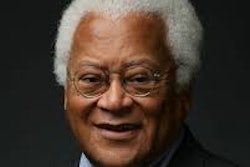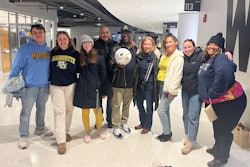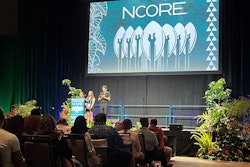The scar on my thigh reminds me of the day I almost gave up my career as a teacher.
A 9-year-old boy in my class, who hated and felt disrespected at school, shoved me into a sharp table at my first teaching job in New Jersey. That night, I considered quitting or having the child removed from my class.
But I didn’t, and 23 years later, he is a father and a husband with a successful military career. I remain close friends with his parents.
That student taught me that educators can extract genius from struggling learners, whether they are autistic, have Attention Deficit Hyperactivity Disorder, dyslexia, anxiety disorders or other challenges. I now dedicate my career to helping children and adults with learning and behavioral challenges, co-directing a center that is focused on the emerging field of neurodiversity education at a Southern California university.
These learners are the next frontier in social justice, following in the footsteps of gender, race, religion and sexual-orientation equality.
A decade after the passage of the United Nations’ Convention on the Rights of Persons with Disabilities, only 28 percent of countries that signed the treaty ensure through their constitutions that disabled children have a right to an education, according to a UCLA study. And only about a quarter of those countries prohibit through their constitutions discrimination based on disabilities.
In the United States, high-functioning students with autism and ADHD are increasingly pursuing college degrees. The latest data from the National Center for Education Statistics show about 11 percent of students reported to their colleges that they have learning challenges. The real number is likely much higher, but fear and stigma prevent some students from reporting their challenges to administrators.
It is time for society to break down those barriers and evolve to better serve these learners. When we focus on a person’s limitations or provide inflexible learning environments, we bury potential gifts to society forever.
What steps can we take to help neurodiverse learners succeed?
- Get educated. Teachers, not just those in special education, should take advantage of training that helps them better teach a wider spectrum of learners. They can learn to be more nimble in the classroom, shifting teaching approaches based on the needs of individual students. Mental health professionals, community volunteers and others also should seek out such training.
- Broaden the workforce. Some businesses already have reaped the benefits of hiring neurodiverse thinkers. According to the Harvard Business Review, organizations such as the software corporation SAP have seen gains in productivity and innovation due to recruiting neurodiverse employees. Research has shown that people with dyslexia work exceptionally well with 3D modeling, and people with autism are drawn to systems and parts, making them compatible with computer and technology jobs.
- Shift educational policy. Educational leaders, legislators and others should consider a more diverse classroom structure and academic programs in the K-12 and college environments. Through the Americans with Disabilities Act, we already provide a welcoming environment for many students who need it. We need to do the same for people with learning challenges. This can be as simple as designing rooms that take into account sensory needs such as natural light and air, not overcrowding rooms with too many desks,and providing assistive technology. Policymakers also should advocate for less-restrictive models than those that currently tie age to a specific learning level for all students.
As a society, we have an opportunity to expand our cultural definition of what it means to be “normal.” We can create a whole new social structure that accommodates everyone. And it will not just benefit neurodiverse learners – it will help us all.
I consider myself a more compassionate human being after all these years working with people with a variety of challenges. And for that, I am grateful.
Dr. Niki Elliott is the co-director of the Center for Neurodiversity, Learning, and Wellness at the University of La Verne.


















